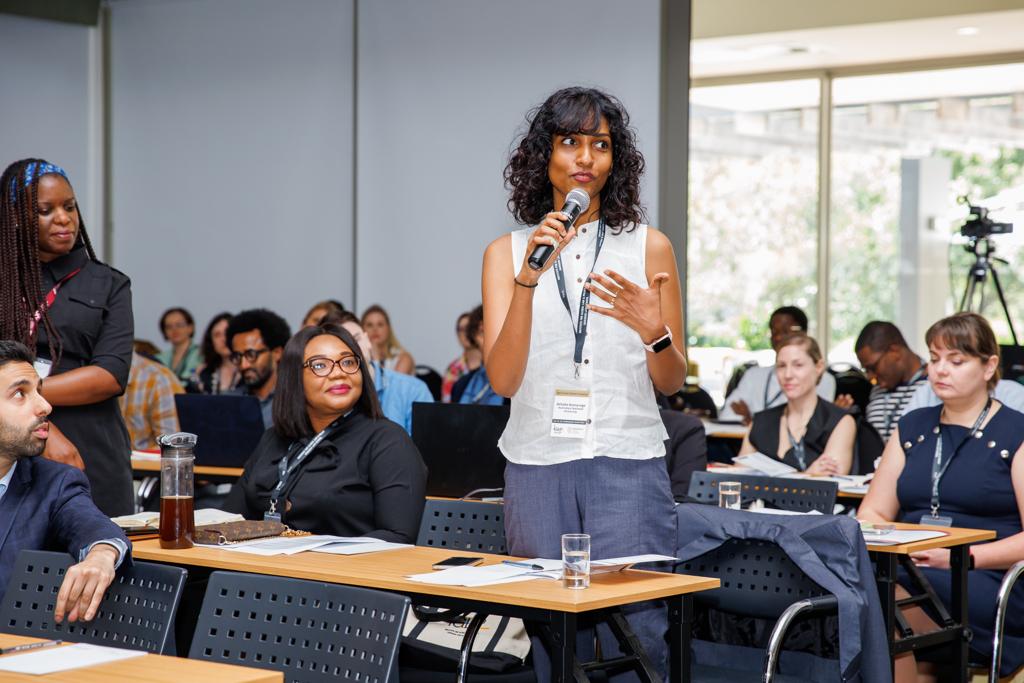In late January, I had the privilege to be selected as one of the scholars to be part of the Harvard Law School’s IGLP Writing Workshop, held at Stellenbosch University, South Africa. This workshop gave me the opportunity to reflect on how to review a research article, explore how to engage policymakers in solving global problems in inclusive ways and have fun with a network of global scholars. As scholars, we must review the work of others and have our works reviewed. Consequently, we must be mindful of the fundamentals and best practices in giving feedback on scholarly works. This post will share my reflections on lessons learnt from engaging with these global scholars and some of what we learned during the workshop.
How NOT to review a research article
The essence of reviewing any academic work is to make it better. However, I have had the experience of seeing established academics tear down a piece of work, all in the name of ‘reviewing’ the article. At the IGLP writing workshop, colleagues and senior academics were invited to review each person’s work under strict rules. This entailed identifying the central argument, the methodology, the scholarly intervention and the likely audience for the piece, then giving constructive feedback. Perhaps most importantly, the senior academics taught, by doing, how not to review the works of others. Their goal was to formulate their feedback in a manner that assists the author to achieve his or her objectives better. So here are certain things you should not do in reviewing the intellectual work of others.
First, do not suggest that the author takes a totally different theoretical/political approach (such as the one you might take) to the issue he or she is addressing. This is usually not helpful in improving the work as it amounts to imposing your views onto their work. Instead, it is more helpful when you propose the consideration of related literature that might offer further theoretical or methodological insights to their work. As well, you might suggest how the author could clarify or sharpen the thesis or methodology, or reorganize the paper to make the thesis/intervention clearer.
Second, do not propose a different/more interesting question the author could have answered. If there are some fundamental issues with the paper, you may make suggestions on, for instance, whether the methods are appropriate to the question/data or recommendations on some unexamined alternative explanations for the conclusions offered. One could also point out objections that are likely to be raised by the paper and suggest possible responses. But it is best practice to restrain from suggesting a “more interesting question” without linking it to the question proposed by the author.
Third, you may have experienced a review session where it appears like ‘If you can’t say something nasty, you are not thorough’. This should not be so. You can communicate your feedback in nice ways and without killing the morale of the writer. This is not to say that you should not communicate perceived flaws in the paper but that you should ensure decency and decorum in all your interventions.
Lastly, do not give ambiguous and unclear feedback. As much as possible, be specific and use examples. Avoid making sweeping statements and generalizations without backing them up with examples. For instance, statements like, “the paper is unclear”; “I couldn’t understand the paper”; “the paper is uninteresting;” “I fell asleep while reviewing it”; or “this paper leaves many questions unanswered”, are largely unhelpful. If there is something confusing, say so but ask it in a way that presents options and that you truly considered the work. For example, “this section of your paper was unclear to me. Were you trying to express X or Y?” This lets the writer know where you thought they were going, so that they can clarify in their next iteration. Using examples will drive home your points.
Bringing Lessons Home

My current research focuses on global governance of food and agricultural data. Reflecting on my experience at the workshop and its value to my current postdoctoral research, I particularly benefitted from the opportunity to have people hear about my research and be interested in its findings. I got constructive feedback from both peers and senior colleagues, many of whom serve as editors and reviewers for reputable journals.
In addition to the lessons above, the workshop exposed me to become more conscious of my reading audience – whether I target academics, policymakers, or both – I must identify the audience early in the process and write with that in mind. This is particularly important in my present postdoctoral research, since I am writing for both academics and policymakers, requiring a conscious and unique writing style, with an ease of comprehension for both audiences.
I will not forget to mention that I also enjoyed the serene environment of Stellenbosch, with its finest wine and hospitality. I highly recommend it.
Note: banner photo by John Schnobrich at Unsplash.










